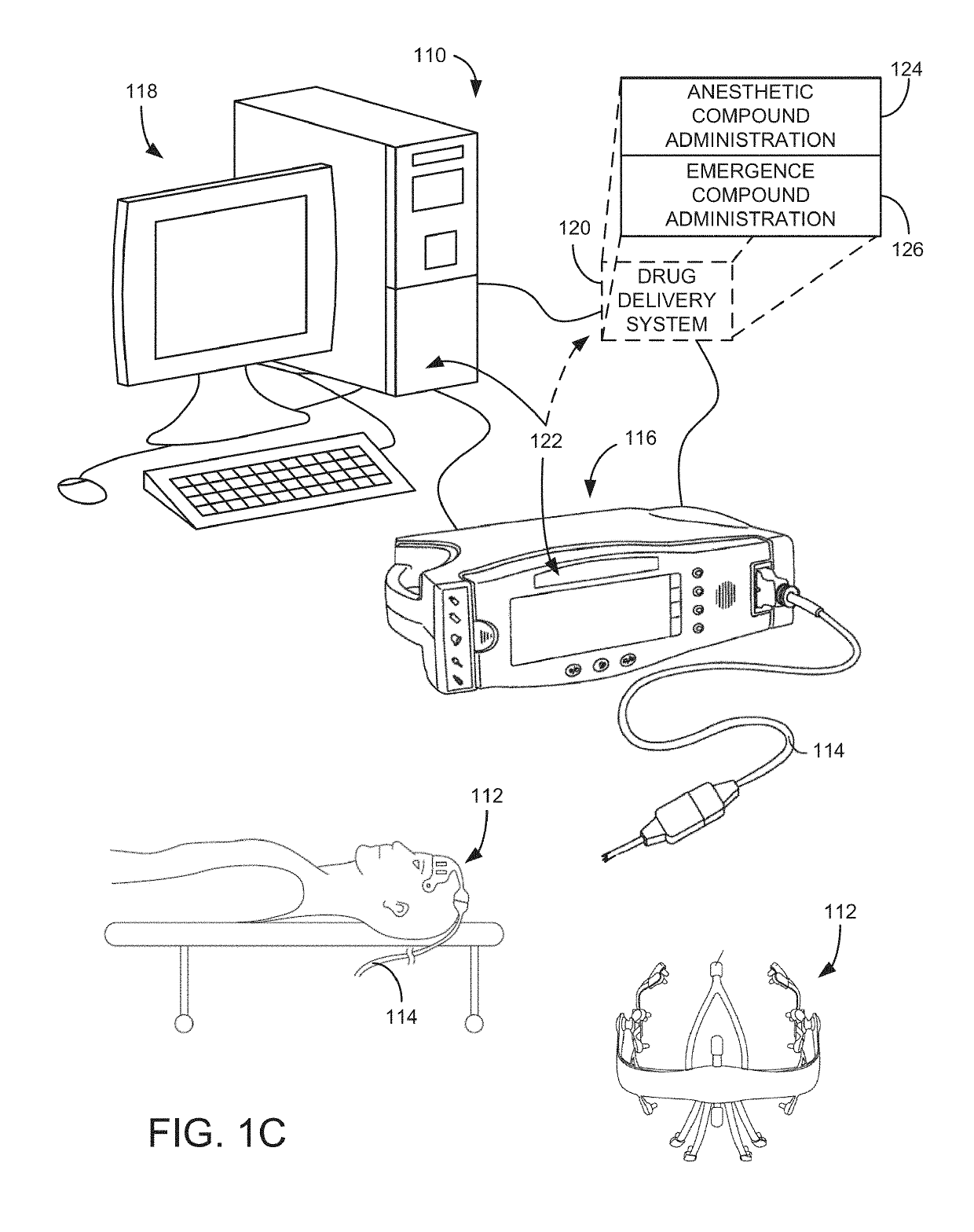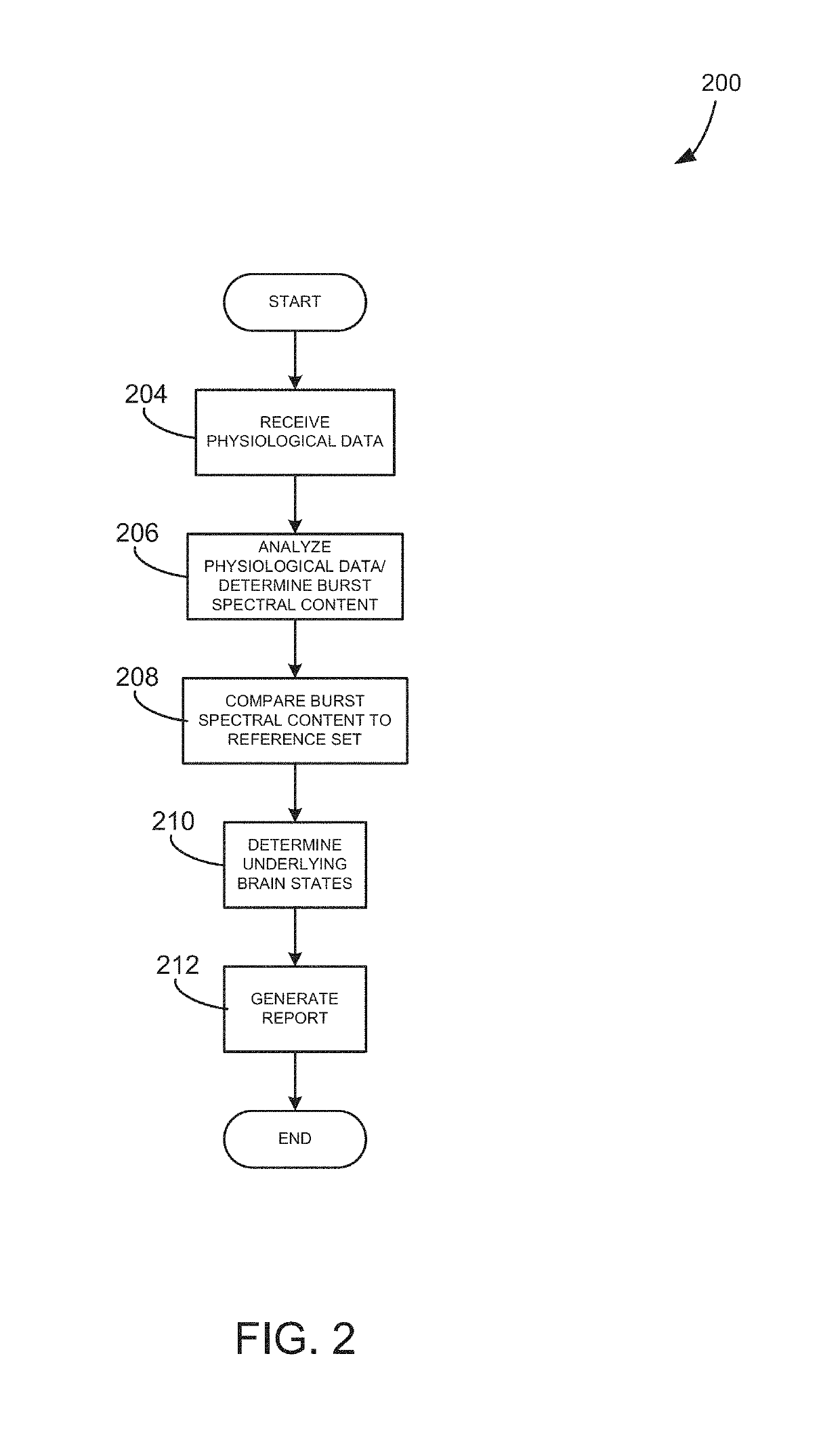Systems and methods to infer brain state during burst suppression
a brain state and burst suppression technology, applied in the field of systems and methods for monitoring a subject, can solve the problems of incomplete understanding of the effects of anesthesia on patients and the operation of the patient's brain over the continuum of “levels” of anesthesia, and the underlying dynamics are not fully understood, so as to achieve the effect of improving monitoring
- Summary
- Abstract
- Description
- Claims
- Application Information
AI Technical Summary
Benefits of technology
Problems solved by technology
Method used
Image
Examples
examples
[0105]Five patients with epilepsy intractable to medication, who were implanted with intracranial electrocorticography (ECoG) electrodes for standard clinical monitoring (AdTech Inc, Racine Wis.). Informed consent was obtained from all patients in accordance with the local institutional review board. Electrode placement was determined solely by clinical criteria. One patient was implanted only with depth electrodes and the other four had a combination of depth electrodes and subdural grid and strip electrodes, with 1 cm spacing between electrode contacts. Recordings were collected throughout induction of general anesthesia using propofol, at the beginning of a surgery to explant the electrodes. A portion of one recording from one patient was previously reported in a separate analysis of slow oscillations. ECoG data was recorded with a sampling rate of 2000 Hz, lowpass filtered at 100 Hz and resampled to 250 Hz. For all analyses of spatial dynamics (FIGS. 5-8), grid c...
PUM
 Login to View More
Login to View More Abstract
Description
Claims
Application Information
 Login to View More
Login to View More - R&D
- Intellectual Property
- Life Sciences
- Materials
- Tech Scout
- Unparalleled Data Quality
- Higher Quality Content
- 60% Fewer Hallucinations
Browse by: Latest US Patents, China's latest patents, Technical Efficacy Thesaurus, Application Domain, Technology Topic, Popular Technical Reports.
© 2025 PatSnap. All rights reserved.Legal|Privacy policy|Modern Slavery Act Transparency Statement|Sitemap|About US| Contact US: help@patsnap.com



